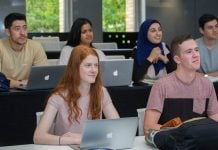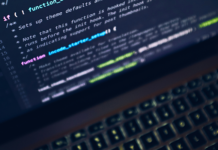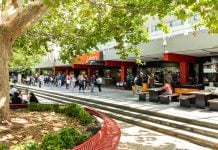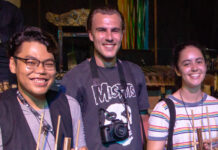Tristan Lenaz is an Indigenous Research Coordinator and part of the Research Education and Development Team and the Office for Indigenous Strategy and Education at La Trobe University.
He is a proud Trawlwoolway man who grew up in country north-east Victoria and who appreciates family, friends and a sense of community. Tristan is passionate about promoting Indigenous education ningina tunapri (to give knowledge and understanding).
Here he shares his experience of running a writing retreat in collaboration with the University of Tasmania for Indigenous postgraduate students. This reflection was originally posted on the La Trobe University Research Education Development (RED) Alert
As part of my role as an Indigenous Research Coordinator, I recently organised a writing retreat in collaboration with the University of Tasmania (UTAS), for 10 La Trobe Indigenous postgraduate students.
This was the first event of its kind for La Trobe and a powerful experience for both the organisers and participants. Here, I explain a bit about the retreat, provide some reflections and offer advice for others who might wish to try something similar.
Like many writing retreats, one of the key aims for us was to make time for thinking and writing in a supportive space, removed from normal, daily distractions. But we also designed the collaboration to be a more holistic experience for our students so that they could further experience Indigenous culture in Tasmania and listen and learn from established Indigenous researchers.
Our writing sessions followed the Shut Up and Write (SUAW) style structure, using the Pomodoro method. This is a way of working that I’ve only started using this year and have found it to be a great setup for people to hook into work, but also have that five-minute breather. In that five minutes, you have a yarn and then it feels like you get a more productive working period by breaking up the intensity. The SUAW style was new to most of our postgraduate researchers but it worked really well.
Aside from focused writing time in the mornings, we organised guided sessions on topics such as how to publish research work, helping the cohort that travelled with us to better understand the options available to them (and I learnt a lot from this too!), as well as off-campus activities.
We also designed the collaboration to be a more holistic experience for our students so that they could further experience Indigenous culture in Tasmania
One of these activities was a very moving First Nations Tour of the Tasmanian Museum and Art Gallery which included a lot of rich Palawa history. This was an unbelievable experience but also a heart-breaking one for me and many others, as we confronted stories of colonial atrocities in some of the excellent exhibitions (including parrawa parrawa! Go Away!, which you should definitely check out next time you’re in Hobart).
This meant, in many ways, that the overall experience was much more than just a writing retreat. On a personal note, my time on this trip was full of spiritual connection, especially being from Tasmanian Aboriginal cultural roots. The fact that I hadn’t been back to Tasmania since I was a little boy was very cleansing for my soul and something I’d been missing for a long time.
And it was through these broader experiences and activities that I was able to connect with a lot of our postgraduate students that I hadn’t met yet, hearing their stories and where they’re from and just hanging out with other mobs and the UTAS Indigenous staff.
Developing relationships
I’m also happy to report that we really developed our relationship with UTAS and that the retreat was such a success that we are already starting to plan another one for 2024.
To reciprocate the generosity of our hosts at the UTAS Riawunna Centre, we hope to invite our Tasmania-based colleagues over to our campus in Melbourne (Bundoora), involve them in local Wurundjeri culture and show them what La Trobe has to offer.
We’ve also found a way to keep the momentum and connection going through setting up a recurring, all-Indigenous SUAW session on Friday mornings, which I’m looking forward to running. If you’re an Indigenous student or researcher at La Trobe and you’d like to join us, get in contact with me at t.lenaz@latrobe.edu.au
Finally, for anyone else looking to create something similar, I would highly recommend having each day planned out well, beginning the day with focused writing sessions, but also ensuring that you have a broader range of activities to bring everyone together and provide a more immersive sense of learning. And be prepared for a lot of travel admin!
With huge thanks to all of the participants, Professor Julie Andrews (La Trobe University), Associate Professor Sadie Heckenberg (University of Tasmania) and Huw Peacock (University of Tasmania) for making this event possible.













